
Here is the preface to my book:
I am just like you.
I grew up in a typical dysfunctional family, where we rarely communicated about the important things such as feelings, money, sex, and dying.
It's no wonder that I found myself overwhelmed and at a loss for what to do when my parents abruptly fell ill two years ago.
You see, they had been completely independent well into their late 80s. They maintained the house they lived in for more than 40 years; they paid all their bills on time; they did all household repairs; they both drove well-maintained cars; they consumed at leased two meals a day that they prepared; Dad handled the yard work; and they were perfectly groomed. My mom was always well-dressed and well coiffed, wearing the latest styles, matching her colors from head to toe, applying full makeup, and wearing high heels shoes and stylish boots every day. She even line-danced regularly, performing throughout Chicago with other seniors. My dad performed all the physical labor inside and outside of the house, including housekeeping, gardening, and decorating the house inside and out during the holidays.
This all changed when my mom suffered a stroke and fell down a flight of stairs in January 2005.
Fortunately, she suffered no physical injuries from the fall because padded carpeting on the stairway buffeted her. Her emotional and mental health, however, began to diminish. We discovered later she had a stroke which caused the fall. She began to deteriorate dramatically, refusing to eat or drink water; she only slept all day long. She began to hallucinate insisting she had spent time with loved ones who had long passed away, including my dear sister. She even insisted she had spent time with Jack the dog. Importantly, Jack the dog had died when she was a little girl.
She was eventually admitted to the emergency room where she was diagnosed with” failure to thrive”. Those words still haunt me today. I spoke to the Chicago doctor from Miami, asking him, what were the next steps? He revealed there were no next steps--my mom would not leave the hospital. Her days were numbered. My mom was determined to fight this diagnosis/declaration/ directive, and was eventually transferred to a nursing home for skilled nursing home care. I evaluated several Chicago nursing homes and chose one minutes from her hospital and only a 20 minute drive from our house.
It was there in the nursing home that my eyes were opened to the world of long-term care for aging adults. During the first two weeks of my mom's 30 day stay, I drove out to the nursing home daily and spent all day at her bedside. Each day I brought her favorite foods, new easy to wear outfits, and family photos to adorn her hospital room. My mom had many visitors from friends, neighbors, church members, and even the pastor of her Catholic church. Her room was always full of flowers, get well greeting cards, and visitors. One friend even sent a manicurist to make my mom's nails beautiful! Another friend washed and braided mom’s hair in the shower stall. Another dear friend, who came with me each day, took my mom's laundry home and freshened it up herself with lots of love and fragrant fabric softener.
It was there in the nursing home that I learned how to communicate with geriatric doctors, social workers, physical therapists, occupational therapists, nutritionist, and a host of round-the-clock nurses and nurse’s aides. The nurses aides are the biggest heroes because they dutifully trudge the road to helping clients who are society’s forgotten and who are often unaware of the care that is given. I developed deep affection for those who care for my mom and a great appreciation for the complexity of their work.
The results of 30 days of intensive round-the-clock professional care were: my mom gained 20 pounds, walked well with the aid of a walker, and had rich and cogent conversations with friends of all ages.
I am for ever grateful to those nursing home staff who transformed my mom from the state of failure to thrive to desire to thrive.
The next phase of our journey began when I brought my mom home in March 2005. Because she had been diagnosed with early-stage Alzheimer's, I was required to provide round-the-clock care.
Sadly, my dad, her husband of more than 60 years, began to decline, right alongside my mom. He also resisted help and denied Mom was sick. He could not accept that his soul mate may never be restored to her prior feisty, passionate self. He made my role difficult because he attempted to undo much of what I put into place. He even resisted every single care giver, yet, now, he depends on them with enthusiasm.
I was charged with all duties of care management for my parents. Since that time, I have hired round-the-clock staff, consulted many times with hospital and mobile doctors, nurses and social workers, elder care agency managers, pharmacists, insurance company representatives, durable medical equipment representatives, lawyers, accountants, bankers, and a wide range of home repair professionals. I even had to maintain the family car, which broke down quite regularly.
On several occasions, I was told by doctors and nurses that she had less than six months to live. Mom has beaten all the odds! More than two years later, she is chubby, happy, and serene. What do those medical professionals truly know?
I travel to Chicago monthly since January 2005 and spend 15-80 hours per week with managing my parents’ care.
Two years later, I find I possess a wealth of information about how to be an effective long-distance caregiver.
In the beginning, I had absolutely no knowledge of what to do or how to do it.
I am extremely pleased that our family had the wisdom to openly discuss advance directives and for healthcare, and how they wanted their assets to be distributed. We had this discussion several years ago. Fortunately, they had an elder care attorney to draft all legal documents, dictating what kind of medical attention they desired, who the decision-maker would be (I have power of attorney for property and healthcare), and how they wanted their property to be distributed. The house and contents and most of the financial assets will go to me, their only surviving daughter.
During my travels, I talk to many people all over the country about my caregiving episodes. Some of the most common feedback I receive is that people marvel that I am doing it alone without the aid of siblings. I reply I have help from my higher power, our family angels and many friends who love my parents, as I do.
What I'd like to say to you is that if I can do it, you can too!
There are multitudes of resources and references on how to effectively care for your aging loved ones.
I am not an expert. I am merely someone who has actively cared for my parents from a long distance for more than two years.
I hope you will find reading about my journey, helpful in your journey!
Best Regards,
Karla Scott, Long-Distance Caregiver
I am just like you.
I grew up in a typical dysfunctional family, where we rarely communicated about the important things such as feelings, money, sex, and dying.
It's no wonder that I found myself overwhelmed and at a loss for what to do when my parents abruptly fell ill two years ago.
You see, they had been completely independent well into their late 80s. They maintained the house they lived in for more than 40 years; they paid all their bills on time; they did all household repairs; they both drove well-maintained cars; they consumed at leased two meals a day that they prepared; Dad handled the yard work; and they were perfectly groomed. My mom was always well-dressed and well coiffed, wearing the latest styles, matching her colors from head to toe, applying full makeup, and wearing high heels shoes and stylish boots every day. She even line-danced regularly, performing throughout Chicago with other seniors. My dad performed all the physical labor inside and outside of the house, including housekeeping, gardening, and decorating the house inside and out during the holidays.
This all changed when my mom suffered a stroke and fell down a flight of stairs in January 2005.
Fortunately, she suffered no physical injuries from the fall because padded carpeting on the stairway buffeted her. Her emotional and mental health, however, began to diminish. We discovered later she had a stroke which caused the fall. She began to deteriorate dramatically, refusing to eat or drink water; she only slept all day long. She began to hallucinate insisting she had spent time with loved ones who had long passed away, including my dear sister. She even insisted she had spent time with Jack the dog. Importantly, Jack the dog had died when she was a little girl.
She was eventually admitted to the emergency room where she was diagnosed with” failure to thrive”. Those words still haunt me today. I spoke to the Chicago doctor from Miami, asking him, what were the next steps? He revealed there were no next steps--my mom would not leave the hospital. Her days were numbered. My mom was determined to fight this diagnosis/declaration/ directive, and was eventually transferred to a nursing home for skilled nursing home care. I evaluated several Chicago nursing homes and chose one minutes from her hospital and only a 20 minute drive from our house.
It was there in the nursing home that my eyes were opened to the world of long-term care for aging adults. During the first two weeks of my mom's 30 day stay, I drove out to the nursing home daily and spent all day at her bedside. Each day I brought her favorite foods, new easy to wear outfits, and family photos to adorn her hospital room. My mom had many visitors from friends, neighbors, church members, and even the pastor of her Catholic church. Her room was always full of flowers, get well greeting cards, and visitors. One friend even sent a manicurist to make my mom's nails beautiful! Another friend washed and braided mom’s hair in the shower stall. Another dear friend, who came with me each day, took my mom's laundry home and freshened it up herself with lots of love and fragrant fabric softener.
It was there in the nursing home that I learned how to communicate with geriatric doctors, social workers, physical therapists, occupational therapists, nutritionist, and a host of round-the-clock nurses and nurse’s aides. The nurses aides are the biggest heroes because they dutifully trudge the road to helping clients who are society’s forgotten and who are often unaware of the care that is given. I developed deep affection for those who care for my mom and a great appreciation for the complexity of their work.
The results of 30 days of intensive round-the-clock professional care were: my mom gained 20 pounds, walked well with the aid of a walker, and had rich and cogent conversations with friends of all ages.
I am for ever grateful to those nursing home staff who transformed my mom from the state of failure to thrive to desire to thrive.
The next phase of our journey began when I brought my mom home in March 2005. Because she had been diagnosed with early-stage Alzheimer's, I was required to provide round-the-clock care.
Sadly, my dad, her husband of more than 60 years, began to decline, right alongside my mom. He also resisted help and denied Mom was sick. He could not accept that his soul mate may never be restored to her prior feisty, passionate self. He made my role difficult because he attempted to undo much of what I put into place. He even resisted every single care giver, yet, now, he depends on them with enthusiasm.
I was charged with all duties of care management for my parents. Since that time, I have hired round-the-clock staff, consulted many times with hospital and mobile doctors, nurses and social workers, elder care agency managers, pharmacists, insurance company representatives, durable medical equipment representatives, lawyers, accountants, bankers, and a wide range of home repair professionals. I even had to maintain the family car, which broke down quite regularly.
On several occasions, I was told by doctors and nurses that she had less than six months to live. Mom has beaten all the odds! More than two years later, she is chubby, happy, and serene. What do those medical professionals truly know?
I travel to Chicago monthly since January 2005 and spend 15-80 hours per week with managing my parents’ care.
Two years later, I find I possess a wealth of information about how to be an effective long-distance caregiver.
In the beginning, I had absolutely no knowledge of what to do or how to do it.
I am extremely pleased that our family had the wisdom to openly discuss advance directives and for healthcare, and how they wanted their assets to be distributed. We had this discussion several years ago. Fortunately, they had an elder care attorney to draft all legal documents, dictating what kind of medical attention they desired, who the decision-maker would be (I have power of attorney for property and healthcare), and how they wanted their property to be distributed. The house and contents and most of the financial assets will go to me, their only surviving daughter.
During my travels, I talk to many people all over the country about my caregiving episodes. Some of the most common feedback I receive is that people marvel that I am doing it alone without the aid of siblings. I reply I have help from my higher power, our family angels and many friends who love my parents, as I do.
What I'd like to say to you is that if I can do it, you can too!
There are multitudes of resources and references on how to effectively care for your aging loved ones.
I am not an expert. I am merely someone who has actively cared for my parents from a long distance for more than two years.
I hope you will find reading about my journey, helpful in your journey!
Best Regards,
Karla Scott, Long-Distance Caregiver
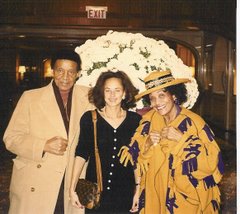
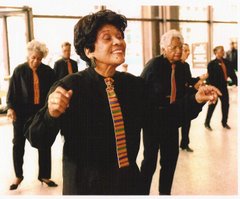
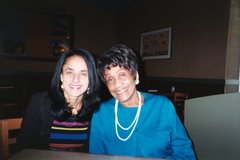
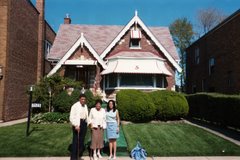
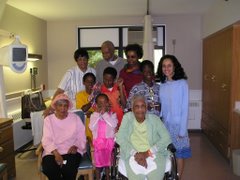
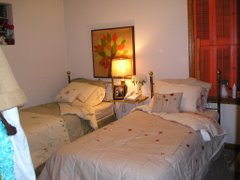
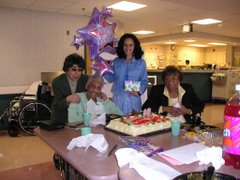
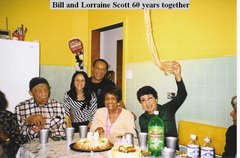
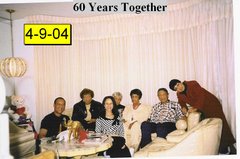
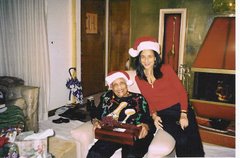
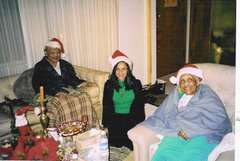
.jpg)